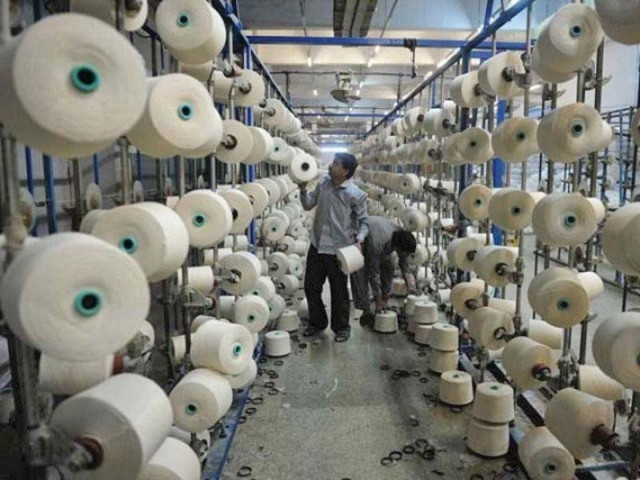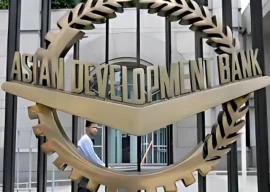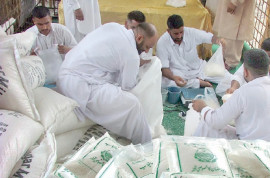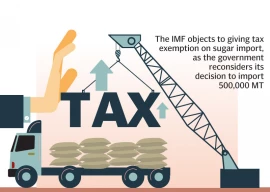
Exporters say they have already started losing money because of sharp depreciation of the pound sterling against the rupee, and if the trend continues, exporters may lose significant business in the UK.
Post-Brexit: What it means for the Pakistani economy
“Exporters have already taken a hit, especially those who deal in finished products, fashion garments and knitwear,” Mian Kashif Ashfaq, CEO of ChenOne, one of the largest store chains in Pakistan, told The Express Tribune.
From as high as Rs155, pound sterling is now trading at Rs139 against the rupee, down about 10%. This will put a lot of pressure on exporters. Moreover, the uncertainty after Brexit is also detrimental to the exports, added the CEO of ChenOne, a subsidiary of Chenab Group, which is one of the largest exporters of home textile products in Pakistan.
Ministry of Commerce’s response
However, the exporters’ concerns are altogether different from government’s assessment. Just four days ago, Commerce Minister Khurram Dastgir Khan tried to calm down exporters, saying that Brexit would not hurt Pakistan’s exports under the European Union’s (EU) Generalised System of Preferences (GSP) plus scheme.
Under the GSP plus scheme, which was implemented from January 1, 2014, Pakistan’s exporters could sell most of their products to EU states at concessionary rates of duty or without any duty, making the goods cheaper for European importers. The duty concessions are for 10 years if Pakistan successfully implements 27 UN conventions related to human rights and labour laws. Meeting the targets of Pakistan’s government, the GSP plus scheme helped added $1 billion in its exports to the EU in the first 12 months of its implementation.
For Pakistan, there is good and bad news post-Brexit
The UK, as a dominant player within the 28-nation trading bloc, is an important market for Pakistan as it ships up to 7% of its exports to the Western European nation. Although it will take at least two years for the country to formally leave the EU, political uncertainty and sharp decline in consumer confidence in the UK are disturbing the exporters.
Brexit has gravely shattered consumer confidence in the UK and people fear the country may plunge in to an economic turmoil similar to the financial crisis of 2008. People are delaying selling and purchasing homes, or booking holidays and buying electronic items and furniture, according to various consumer confidence surveys published by UK’s leading newspapers.
Brexit and textile
Pakistan’s textile exports constitute about 55% of its total exports. Out of Pakistan’s total textile exports of $11.6 billion during the first 11 months (Jul-May) of outgoing fiscal year 2015-16, the UK textile exports’ share was $1.2 billion (10%), according to the latest available data.
Analysts, however, agree with the viewpoint of textile exporters.
“Brexit will definitely hurt our exports to both the UK and the EU, but it is difficult to predict its magnitude,” JS Global Limited analyst Ahmed Lakhani commented.
There are concerns about the new trade negotiations between the UK and Pakistan once the former comes out of the trading bloc in next two years. However, since the two countries enjoy cordial bilateral relations there are fair chances for Pakistan to get favourable concessions from the UK, he added.
Brexit — the Pakistani Brits' perspective
Lakhani said there is all likelihood that the decline in consumer confidence in the UK may hurt Pakistan’s exports, but this would happen with all the regional textile exporters like India and Bangladesh. This means that Pakistan would lose its trade volume but this may not hit its market share in UK’s textile market.
Due to global economic slowdown, especially in Europe, Pakistan’s exports are expected to decline in the outgoing fiscal year 2015-16. Similar to other sectors, Pakistan’s textile exports were already down by 7% in the initial 11 months (Jul-May) of fiscal year 2015-16. Considering all the domestic and international limitations, it’s safe to say that Pakistan exporters and the government will continue to face serious challenges in increasing exports in the next 12 months.
The writer is a staff correspondent
Published in The Express Tribune, July 4th, 2016.
Like Business on Facebook, follow @TribuneBiz on Twitter to stay informed and join in the conversation.

















COMMENTS
Comments are moderated and generally will be posted if they are on-topic and not abusive.
For more information, please see our Comments FAQ